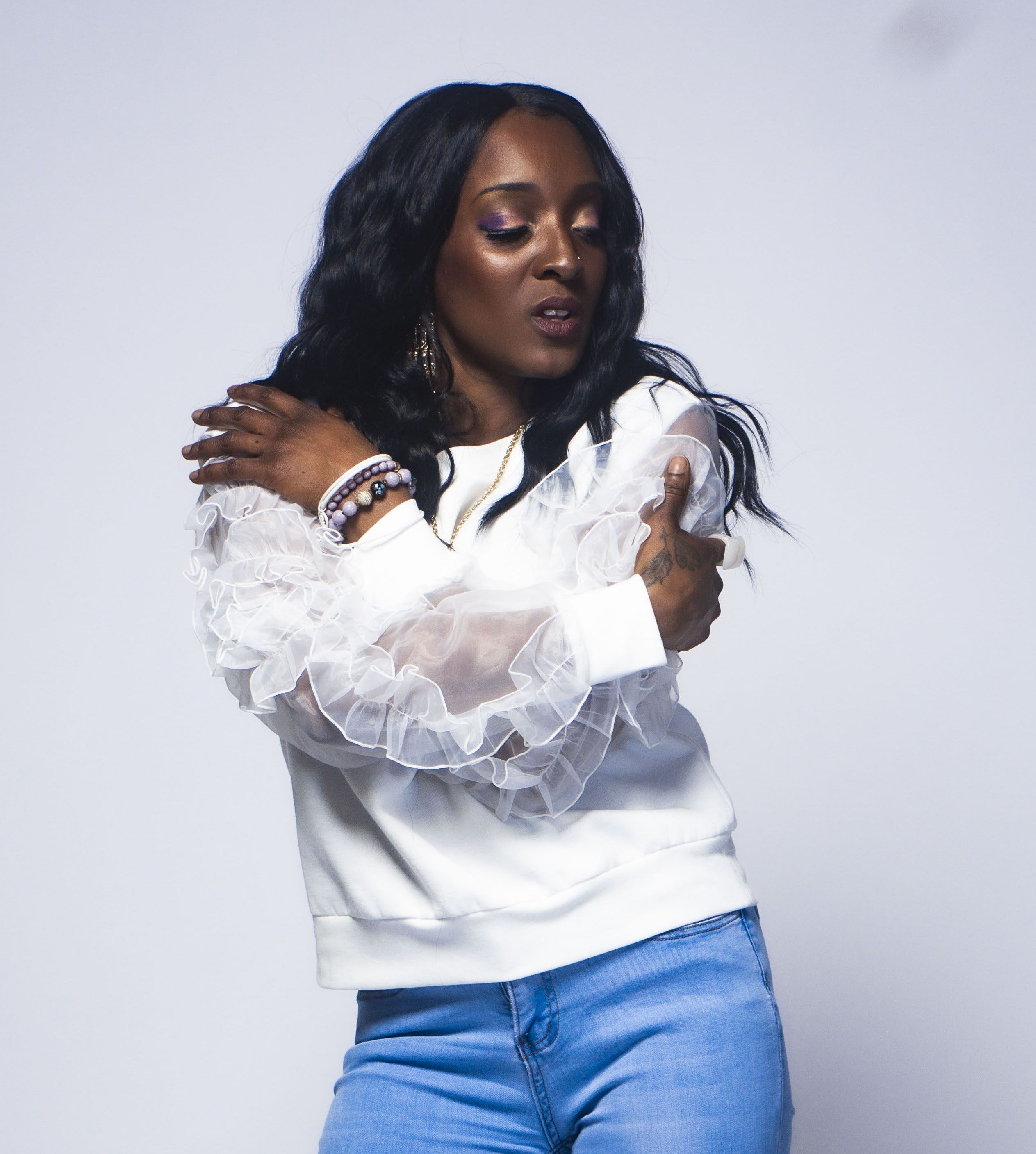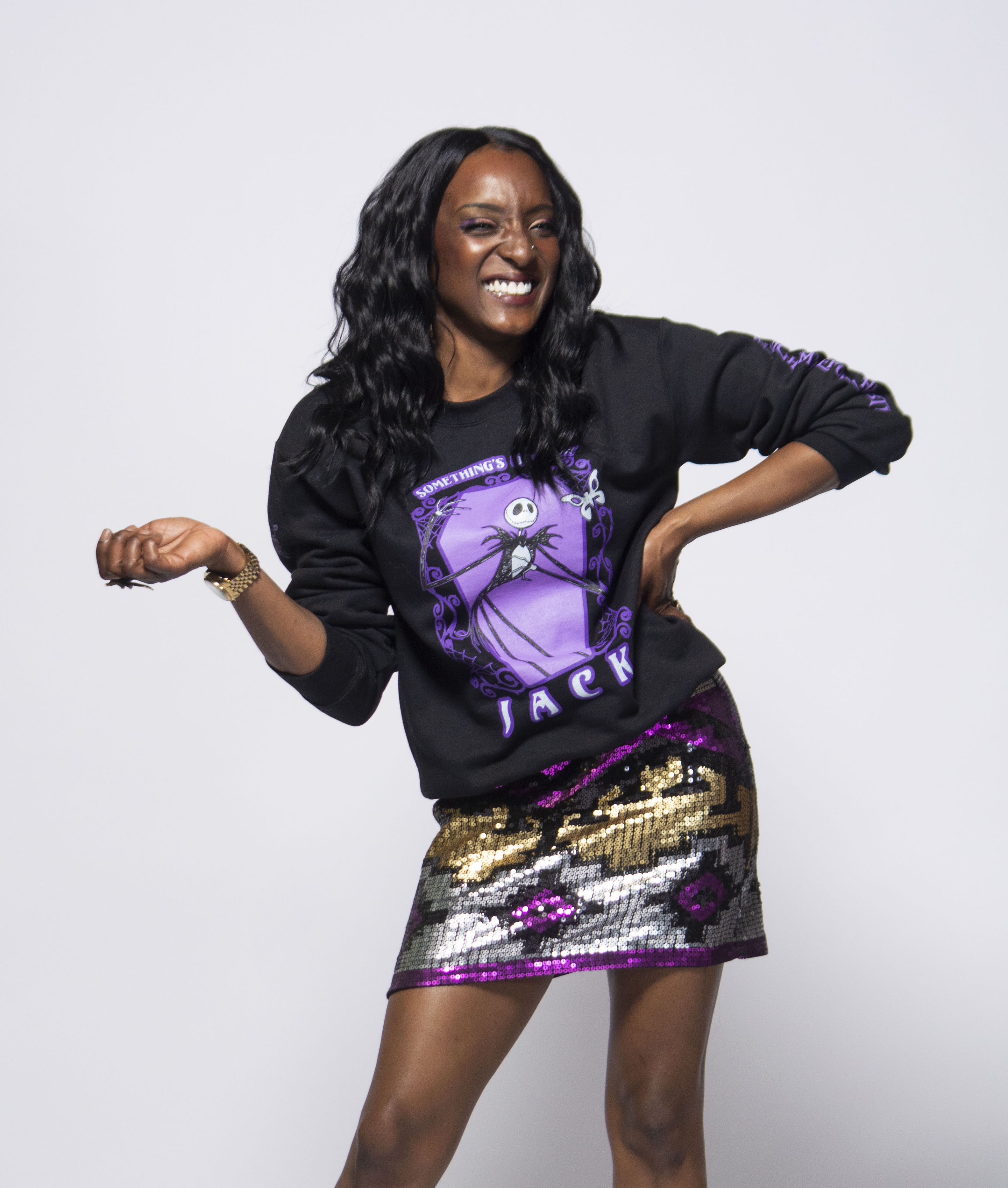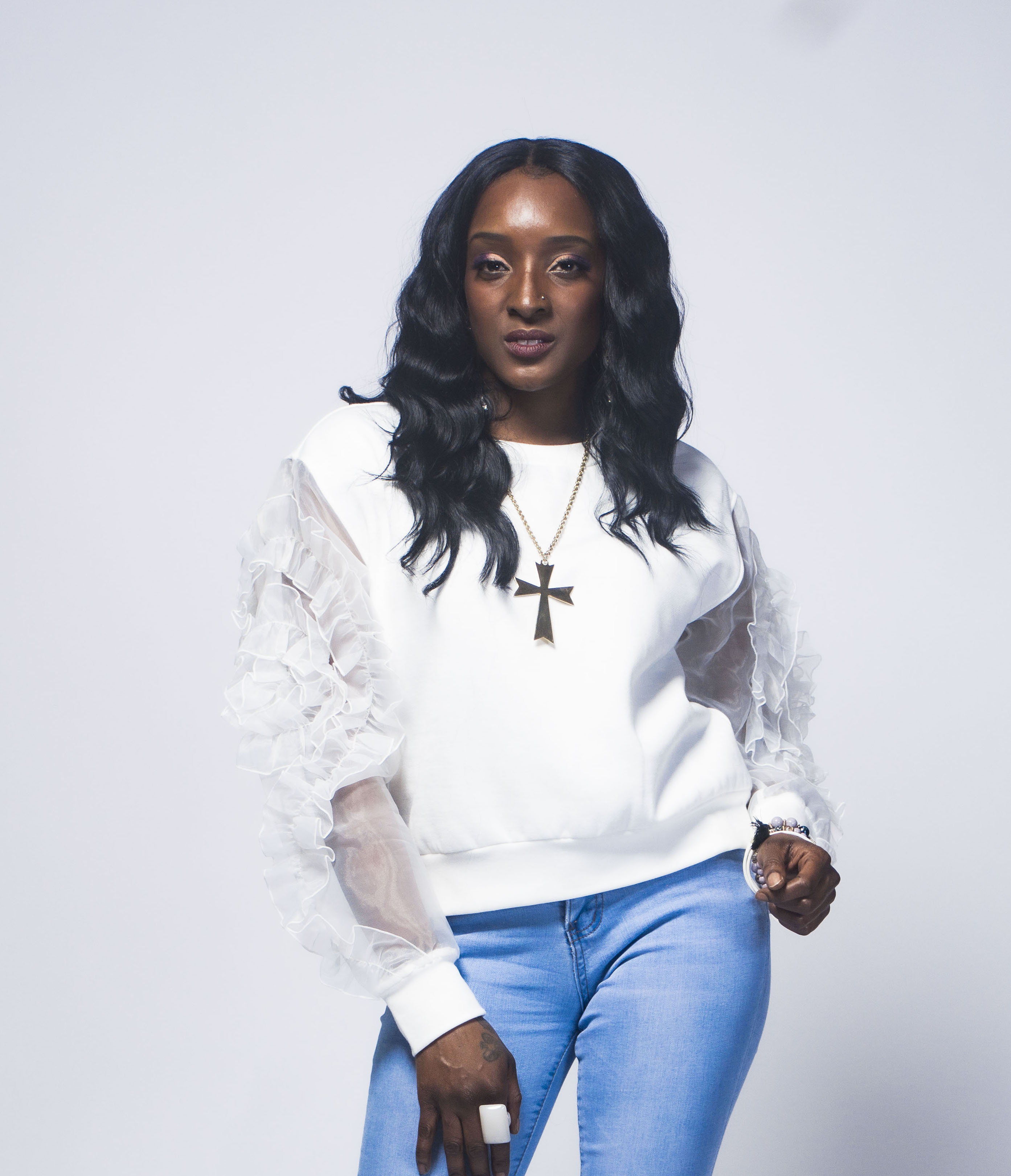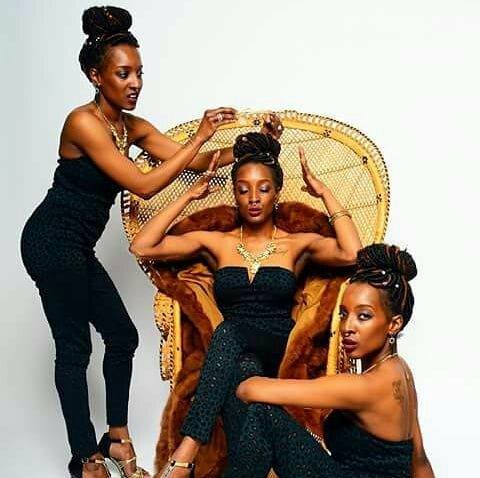10 Questions with Niecey Nicole
10 Questions with Niecey Nicole
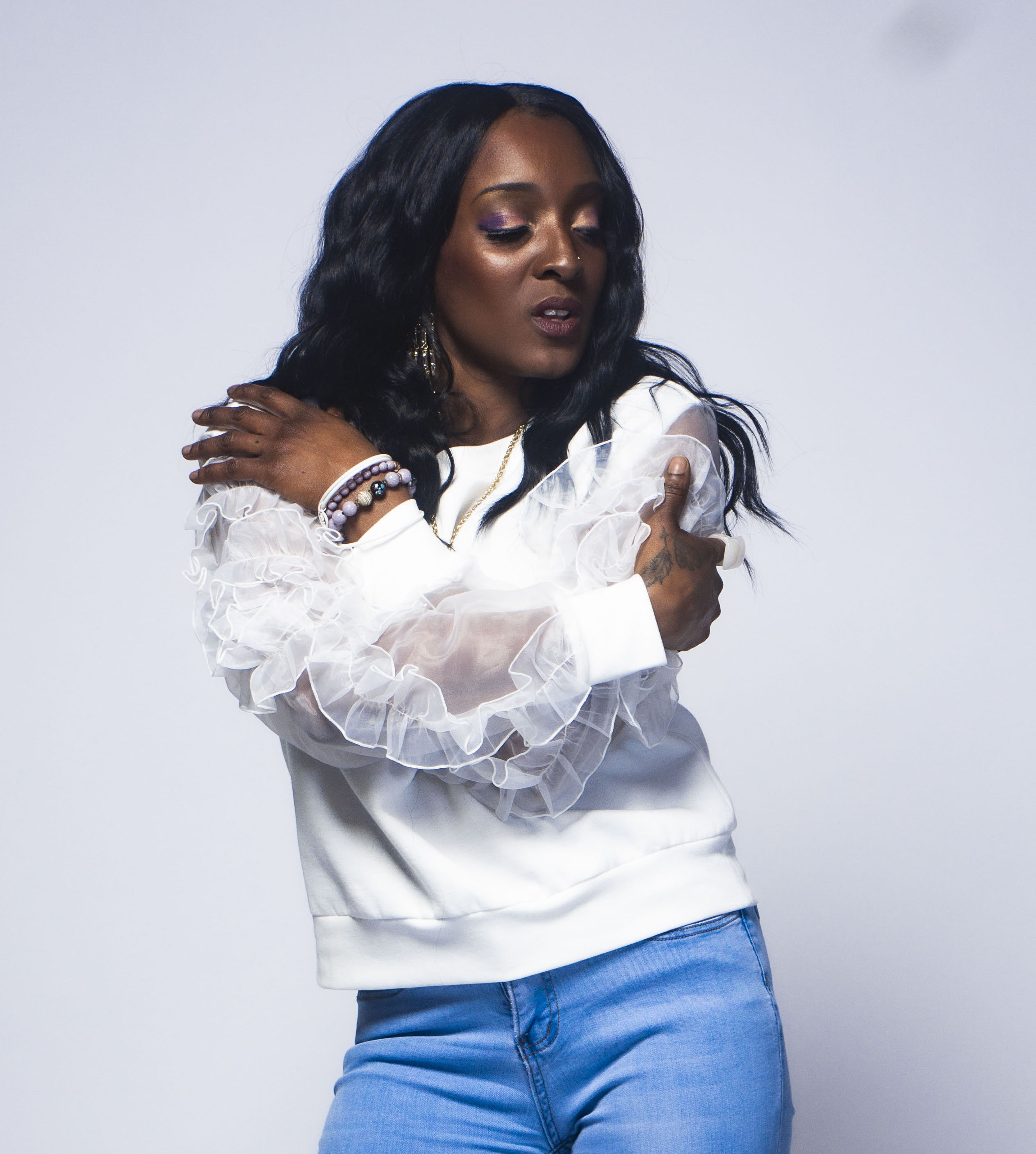
Niecey Nicole
-written by Nat Richmond
Activist, Poet, Spoken Word Artist, and Humoriste. These are just a few adjectives that describe such a dynamic character known as Niecey Nicole. Masterful at incorporating her personal experiences into her works, which allow the listener to dive deeply into her upbringing, and her present-day insights. With a plethora of engaging and courageous 1st person narratives that rope you into her world, she leaves you feeling comfortable enough to reach into the depths of your own psyche, Niecey has a knack for "calling it like it is", both bravely and unapologetically. With a mind, spunk, and creative flair such as this...it's hard not to want to chat with this young change-maker, getting to the nitty gritty of what makes her tick. Bold and assertive, she pulled no punches with me during our talk. As far as it seems, we've only truly touched the tip of the iceberg of this Queen's potential.
How were you first introduced to Literary Art?
As an adolescent I was totally immersed into Black Art. My grandmother and her eldest daughter, my aunt especially, concentrated my attention to literary works. I was reading and writing at a very young age..kindergarten, first grade. I did not make me popular amongst my peers but it did make me intriguing to my teachers. I was able to introduce them to authors that they weren't familiar with and impress the one or two black teachers that were around at the same time. Teachers that were more cultured loved hearing that I was reading Langston Hughes, Ntozake Shange, Mary Hoffman, Virginia Hamilton, and Maya Angelou in elementary school. My strongest subject and quietest time in school was English or language arts. I typically kept a high B and always did well at free writing. I was first published in grade 5 in an anthology. Circa 1997.
Out of all art forms, why did writing feel the most comfortable for you to develop?
Writing was comfortable for me because I appreciate the English language. I had learned "code switching" before it was popular or openly spoken about. I had professionals and educators in my family that were able to show me that superpower... I got excited with wordplay and my audience's reactions to what I wrote. As I got older, I realized that my writing was a gift that was worth money. In high school, I wrote for my peers... I shouldn't say, but I would write research papers for money or poems for honeys (laughs)... And people would actually pay me for just being myself. I later discovered that I was selling intellectual thoughts.... which now as an adult thinking back is wild... I can see relationships that started from a note I wrote for someone who was shy.
How would you say your work has evolved over the years? Do you ever deal with writer’s block? If so, how do you overcome it?
I think my work has evolved as I have grown into adult through my life experiences. I really don't have a traditional writer's block. There are times where I do not write anything at all... not necessarily because I'm blocked but sometimes exhausted from writing too much...I say I am a writer because I love to use a traditional pen and pad however, I have what I describe as spontaneous rhyming fits where I sometimes hyperfixate on a subject and I cannot let it pass until I complete these epic poems.... Which are usually tons of thoughts about the subject that I need to get out. If I am lucky it rhymes. But, my interest in wordplay and how I can make it fit into enjoyable works to read, whether it be a poem short story or a play, discovered my poems got longer and people started to read them and like the work they saw short plays or miniseries....
Do you have a special process for developing your work? Or, do you allow it to just flow?
I don't really have a special process and I wish I did because describing my writing process sounds a bit chaotic. Things come to my mind and I usually stop and write them down on a notebook that I carry, however I fail to keep that notebook on me at all times, so I usually use whatever I can grab whether it be a receipt a napkin. Anything I can write on and then I take those random pieces of paper and compile them in a small shoe box. When I have free time I go through the shoebox and start to organize those thoughts grouping them into categories that fit, arranging them into poems. Another way I have started practicing is taping myself on my phone, whether video or audio and playing them back. I have found this method to be very useful because it helps me to retain my own work so that I can recite better and make edits.
Which of your own works challenged you to dig the deepest? And, why?
My most challenging and probably favorite piece that I did was when I started writing Black Misery Revisited. When I was a little girl, I fell in love with a piece Langston Hughes wrote called Black Misery. I'm not entirely sure that it was intended to be a children's book, however it was illustrated and I was drawn to it but the subject matter was heavy. He challenged what he described as 'miseries' black and brown people suffered in America during the 50s and 60s. I always thought it to be a masterpiece and cherished it. As an adult I did not encounter many people who were familiar with this piece and I researched I realized it was actually released posthumously. I had reread it in my late twenties and realized how much of it resonated with today. There are so many comparisons in his works to some of the works I was writing so I started to compile some of my observations into the same writing style he presented in that piece. When I finished I realized that it was not only a current modern-day observation of his work but also an homage... One that I hope will be able to be accepted as reverence to him one day.
Name a writer that has had the most impact on you as a fellow artist.
I am especially intrigued by Langston Hughes because of his relevance and prominence in the black Harlem Renaissance and the fact that he was treated as a pariah. I think a huge influence for me is Nikki Giovanni. She is a writer poet educator activist and Gemini. She is everything to me. Her dialogue with James Baldwin is an opportunity I'd love to have.
Have you ever received negative criticism for your work? If so, did you allow it to change you as an artist?
I have absolutely received negative criticism for my works. It surprised me because it was more from people close to me people I expected support from. Opportunities where I would have loved to collab on literary projects with other artists didn't happen and it made me sad. There are times much like Langston Hughes wrote about where I felt outcast. There are some local artists that would express openly not being supportive of my work for one way or another. I don't expect to be loved by everyone. I write about my experience as a black woman. As a single queer woman. As a writer and poet and working woman. I'm able to be performative through spoken word art and it is cathartic.
Is there a time period of the past that you would have like to have been apart of so that you could write about it first hand?
I would have loved to be a part of the Harlem Black Renaissance and I'm in efforts to reignite one locally in the area. I aspired to merge spoken word art and jazz creating an Erie Black Renaissance...
How important is it for you to be a voice of the voiceless? Is there a specific audience that you want to influence or impact the most?
Writing comes natural to me and spoken word is something that I can do freely and unapologetically. I am much better on a stage with a microphone than I am in close interpersonal spaces... I have always held a position since my first job to be a representative or advocate for someone. Both of these things come natural to me writing and advocacy. Is why I love being a spoken word artist and activist. Once upon a time I did not speak up for myself I did not defend myself and it was traumatic. I don't ever want to experience that again and, since, I've been able to build my confidence and strength of enough to stand up for the next person. It is important to my children to see that strength and learn it for themselves. That is the reason why I write and speak. People need to hear truth from someone who resembles them and has their best interest. Conversely they need that same person to expose and stop oppression. Introspection, self-evaluation, and correction are also things that are very necessary for anyone... especially one prone to leadership. Lead with curiosity, ambition, knowledge, prep and unapologetic love. Do so as to be living example to the next.


